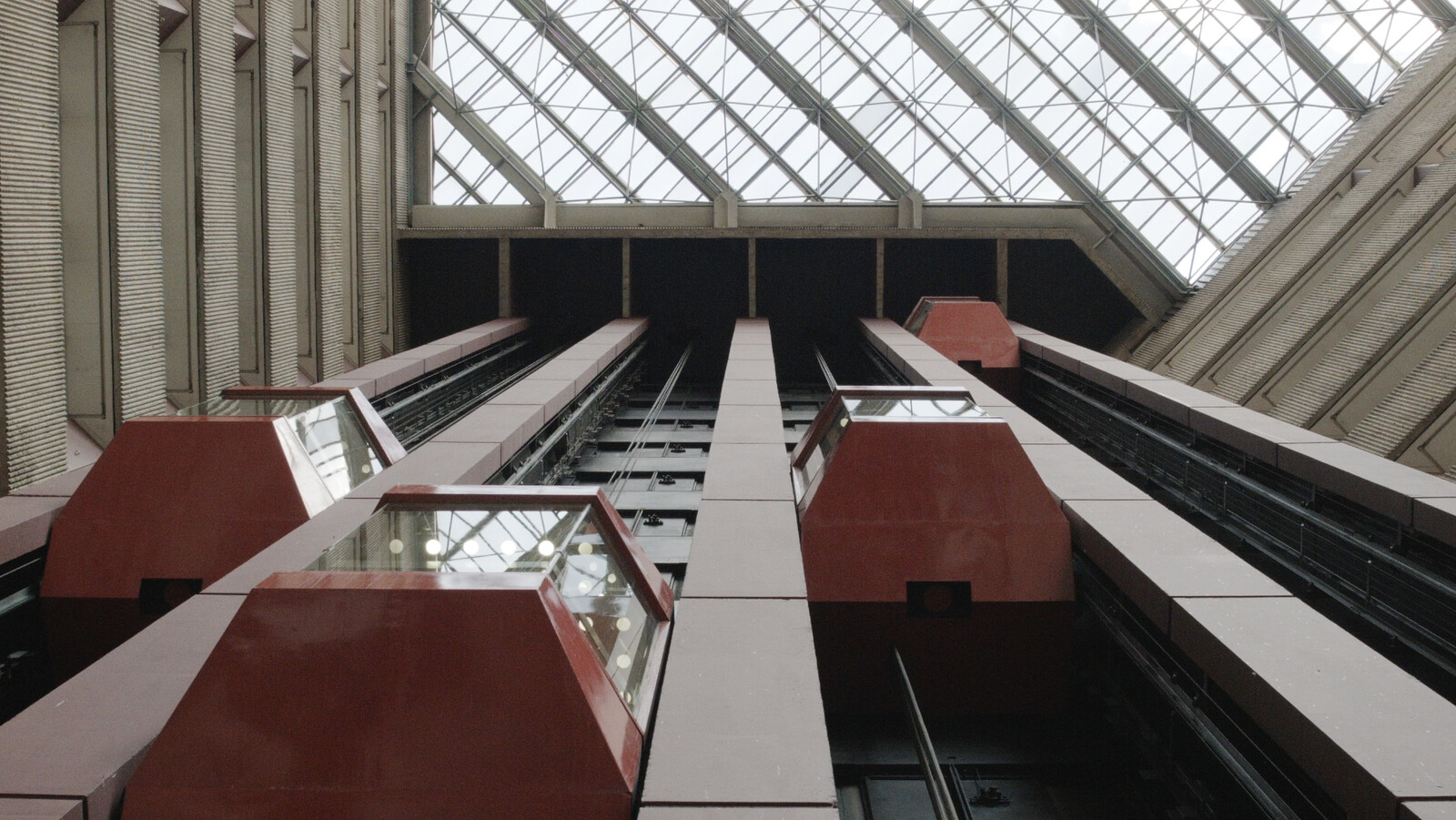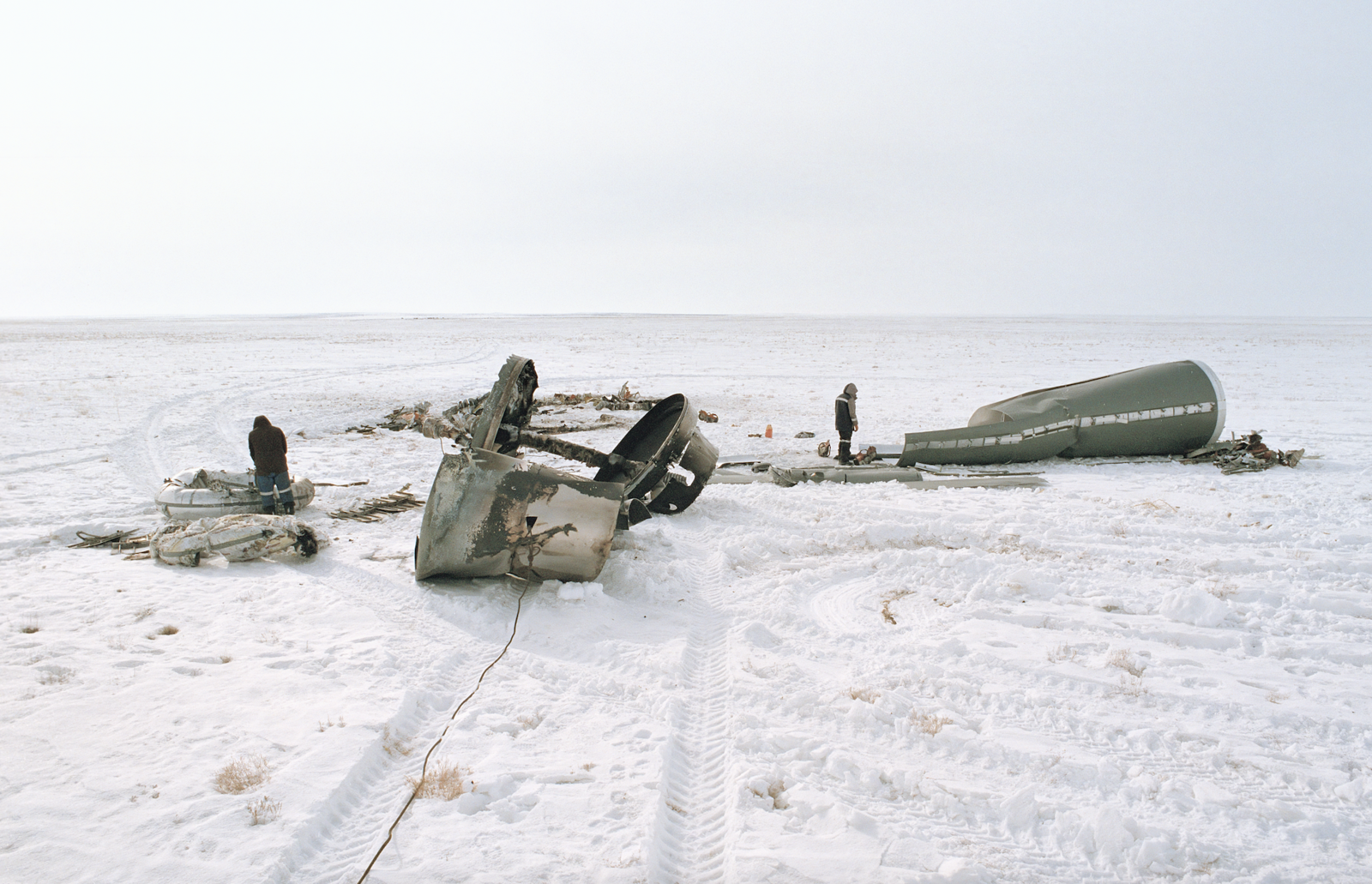July 27–October 8, 2023
Museumpark 25
3015 CB Rotterdam
The Netherlands
Artists: Seline Baumgartner, Denise Bertschi, Tanja Engelberts, Camille Kaiser, Alexander Morozov, Mbene Mwambene, Yelena Popova, Flora Reznik, SashaPasha, Dana Savić, Makar Tereshin, Katerina Verba, Willimann/Arai
Curated by TOK (Anna Bitkina and Maria Veits).
The group exhibition Colonial Endurance. Detecting the Algorithm of Violence in Infrastructures, curated by TOK, explores mechanisms of exploitation, suppression and discrimination deeply rooted within infrastructural and architectural systems—both historically and in the present. The project focuses on built environments and industrial infrastructures that have been used to reinforce dependency and hierarchy between Western Europe and its colonies, as well as between Russia and the countries that used to be a part of the Russian Empire and the USSR. Additionally, it investigates how alternative principles of care, horizontality and knowledge exchange can be integrated into contemporary spatial and infrastructural policies.
In the context of colonial oppressive patterns “algorithm” refers to the systematic and recurring nature of colonialism, regardless of the geographical and temporal context. Like an algorithm in computational systems, colonial patterns are programmed to execute specific actions and outcomes, operating in a predictable and repetitive manner. This suggests a deliberate and calculated design behind colonialism, where oppressive structures were replicated and adapted to different territories and cultures.
Bringing together works by thirteen artists and collectives, the exhibition showcases artistic strategies for detecting this so-called “algorithm of violence” across various geographies. It examines how remnants of colonial processes and imperialist visions continue to endure through architectural and industrial heritage, as well as within ecological landscapes. The exhibition calls for a critical reevaluation of this persistence, as much of it was established on principles of intrusion towards both people and nature. The idea of looking at colonial heritage through its industrial manifestations—river banks, oil processing and hydropower infrastructures, single-industry cities, chemical manufactures, educational and cultural institutions—is catalyzed by the intention to understand which alternative models of economic, political and infrastructural relations should take their place.
By including examples of Russian internal colonialism and its enduring colonial relations with the countries that were once a part of the Soviet Union, the Colonial Endurance project expands upon existing scholarship on forms of enduring coloniality. Due to interdependent, and often traumatic, economic and political histories, many of these countries are still connected, bearing remnants of partially operational or neglected industrial heritage and communication infrastructures. Studying these connections through their architectural embodiment contributes to the knowledge of different histories, formats, mutations and consequences of imperialism, colonialism, and militarism. The exhibition also detects manifestations of post-colonial conditions at work in countries affected by European colonialism, in addition to their impact on global politics and planetary environmental onditions.
The exhibition is an integral part of a larger project Colonial Endurance. It aims at discovering and stimulating loopholes in the predetermined social reality, which is based on principles of violence and inequality. Collectively and individually, the project participants develop artistic and scientific tools that could examine and undermine cycles of systemic violence. The project commenced with a comprehensive online laboratory. Collaborating closely with artists, experts, and researchers, the laboratory operated as a platform for the development of most part of exhibition works. The laboratory and exhibition results will be compiled into an open digital archive, accessible to the public by the end of 2023.
Online archive and laboratory contributors include Aysel Akhundova, Ofri Cnaani, Nikolay Erofeev, Alice Hertzog, Owen Hatherley, Ola Hassanian, Sasha Huber, Samia Henni, Georgy Mamedov, Uriel Orlow, Nikolay Smirnov, Lesia Topolnyk, Anton Valkovsky
Opening: July 27, 5pm
6pm, Walk through the exhibition with the exhibition artists and curators
6:30, Performance by Mbene Mwambene at Het Nieuwe Café
Public program: September 14, 7pm
Nieuwe Instituut Auditorium
Public discussion with architect Ola Hassanain (Sudan/The Netherlands), writer and journalist Owen Hatherley (UK) and architect and researcher Lesia Topolnyk (Ukraine/The Netherlands).
The invited speakers focus on political repercussions and manifestations of architecture. They will respond to the works presented at the exhibition and speak about how their practices and projects are connected to colonial endurance and the future principles of infrastructural relations and connections.
Exhibition opening hours: Tuesday–Wednewday 10am–5pm / Thuresday 10am–9pm / Friday–Sunday 10am–5pm
About the curators
TOK is a nomadic, international curatorial collective founded in 2010 by Anna Bitkina and Maria Veits. Their practice is rooted in historical analysis and political imagination, generating multidimensional projects that explore the causes and consequences of mutating political realities. Often working outside of conventional art spaces, TOK infiltrates social structures, bringing to light their insidious logics and effects, subjecting them to public discourse in order to revisit the roles and power of social institutions and redraft their potential future. TOK’s investigations encompass local governance, public space, media, educational and legal systems (with a specific emphasis on excluded histories), communities and experiences, the politics of built environments, and imposed hierarchies across different societies and geographies. TOK’s activities involve curating exhibitions, socially-oriented art projects, educational events, and publications. Their current curatorial focus includes examining the relationships between the state and the body to uncover remnants of systemic colonial violence embedded in social structures.
Nieuwe Instituut is the Netherlands’ national museum for architecture, design and digital culture. Located in the city of architecture, Rotterdam, in the Museum Park with Kunsthal Rotterdam and Depot Boijmans Van Beuningen as neighbours, Nieuwe Instituut has various exhibition spaces, a museum shop, a museum café (with the city’s loveliest terrace), an auditorium, educational spaces and a garden. Nieuwe Instituut focuses on important social developments, such as the housing shortage, the energy transition, the rise of artificial intelligence, mobility, and the use of public space.




